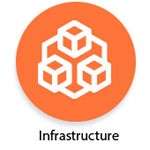COMMERCE
Commerce stream is thought to be ideal for students who are comfortable with ‘crunching numbers’ and want to become accountants in the future. This is why many students feel that the scope of study under the commerce stream is limited, as compared to the other streams.
In fact this a myth ,as commerce students have diversifies options lined for them after class 12:
Today, the commerce stream has emerged as a study stream that is at par with the other two i.e. Arts and Science.
Degree Level Programmes
Commerce students can go for a degree level programmes after the completion of their Class 12 high school education.
B. Com
B. Com stands for Bachelor of Commerce. It is a degree level course that is pursued by students who opt for commerce stream in Class 12. During this course, students are taught fundamentals of accounting and finance beyond the basics. The key subjects that are part of this course include:
- Entrepreneurship
- Corporate Accounting
- Business Regulatory Framework
- Economics
- Computer Applications and IT
- Income Tax
- Auditing
- Human Resource Management
- Statistics
- Banking and Insurance
- Company Laws
- Business Communications
- Management Accounting
- Marketing
- Mathematics
- Business Environment
BBA / BMS
If interested in management then BBA or BMS will be right career path The Bachelor of Business Administration (BBA) / Bachelor of Management Studies (BMS) are degree level courses that are designed to introduce the students to the world of management education. While many BBA colleges offer admission on the basis of Class 12 score / merit, there are a few which require students to go through entrance exams.
BA + LLB
For those interested in Law or the legal studies, an integrated five-year programme i.e. BA + LLB is a perfect platform. The integrated programmes cover graduation degree during the first three years in the subject or specialization that you choose and the final two years, take uplegal studies or education. This is another interesting study option for commerce students who want to specialize in law and their associated fields such as corporate law, taxation law and allied domains.
BBA + LLB
Similar to the BA + LLB course, the BBA + LLB course is also an integrated five-year programme which covers graduate level management education as well as legal studies post that. Students who want to join corporate houses as legal consultants or want to start their own practice with corporate clients should take up this course.
BCA
BCA or Bachelor of Computer Application is a right start to build a bright career ahead. BCA course is a three-year degree level programme that is taken up by students who want to learn coding and computer application development. Commerce students who had mathematics as a subject during their high school are eligible to take up BCA course.
Professional Courses
Apat from the above list a variety of professional courses can shape the academic and professional future. Professional courses available are :
Chartered Accountancy (CA)
Offered by the Institute of Chartered Accountants of India (ICAI), Chartered Accountancy is the most popular professional course among the commerce students. Being a professional course, it opens several career opportunities for the students, starting from self-employment or self-practice as an independent CA or employment in major Indian and multi-national companies, local and foreign banks and audit firms.
As far as the course structure is concerned, the Chartered Accountancy Course includes the following modules:
Module 1: CPT – Common Proficiency Test:
This test covers the basic knowledge of key subjects such as Accounts
- Economics
- Mathematics
- Statistics
- Mercantile Law
This course has two parts and covers a variety of subjects and topics
Part 1 incudes:
- Accounts
- Law
- Costing & Financials Management
- Taxation
- Advanced Accounting
- Auditing & Assurance
- Information Technology
- Strategic Management
In this module, the students taking up CA course must take up an internship under a practicing Chartered Accountant
Students can learn the practical aspects related to Chartered Accountancy as a profession during this training
Module 4: CA Final Exam
The fourth and the final module to become a certified professional Chartered Accountant involves clearing the final exam. The CA final exam covers 8 subjects that are divided into two groups. The detailed breakup of the subjects covered under both the groups are:
CA Final Exam – Group I
- Financial Reporting
- Strategic Financial Management
- Advanced Auditing & Professional Ethics
- Corporate Law & Allied Laws (includes two sections)
- Company Law
- Allied Laws
- CA Final Exam – Group II
- Advanced Management Accounting
- Information systems Control and Audit
- Direct Tax Laws
- Indirect Tax Laws (includes three sections)
- Section A: Central Excise
- Section B: Service Tax & VAT
- Section C: Customs
Company Secretary
Company Secretary is another popular course for commerce students This professional course is offered by the Institute of Company Secretaries of India (ICSI) in three stage examination formats.
Stage 1: Foundation Programme
Eligibility: Class 12 / 10+2 or equivalent (except Fine Arts students)
Key Modules:
- Business environment and law
- Business management, ethics & entrepreneurship
- Business economics
- Fundamentals of accounting and auditing
Stage 2: Executive Programme
Eligibility: Graduation (except Fine Arts students)
Key Modules:
- Jurisprudence, Interpretation & General Laws
- Company Law
- Setting Up of Business Entities & Closure
- Tax Laws
Stage 3: Professional Programme
Eligibility: Clearing Executive Programme
Key Modules:
- Corporate & management accounting
- Securities laws & capital markets
- Economic, business and commercial laws
- Financial and strategic management
Cost & Management Accountant (CMA)
The Cost & Management Accountant is another professional course that can be pursued in stages i.e.
- Foundation
- Intermediate
- Final
After the completion of the programme, you will be a certified Cost Accountant. A certified Cost Accountant’s key responsibility include:
- Maintaining cost account records
- Planning of cost accounts
- Cost Auditing
Many large companies, industries and corporations hire CMA’s to manage the cost of production or operational costs. CMAs ensure smooth functioning of the company by cutting cost in a managed manner without impacting the output or production.







 Career & Guidance Centre
Career & Guidance Centre






